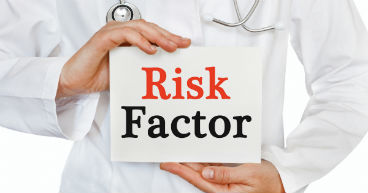
Cancer risk factors like smoking and exposure to asbestos are fairly well understood. Most people know that if they smoke heavily or work around asbestos, they’re at a higher risk for developing cancer. Alcohol’s link to cancer has also come into clearer focus recently, with the U.S. Surgeon General releasing a new advisory outlining the direct link between alcohol consumption and increased cancer risk.
What’s sometimes not as well-known is the role genetics plays in cancer risk—how what’s going on in your genes and what’s passed on by your parents may influence your likelihood of developing the disease.
The National Comprehensive Cancer Network® (NCCN®) is a nonprofit alliance of 33 cancer centers that creates clinical practice guidelines. These guidelines are the recognized standard for clinical recommendations and policy in cancer care, and the most frequently updated clinical practice guidelines available in any area of medicine.
Recently, the NCCN expanded its guidelines to meet the growing understanding of hereditary cancer risk and the use of genetic tests in cancer prevention, screening and treatment.
In this article, we’ll explore:
- What is genetic testing for inherited cancer risk?
- What do the new NCCN guidelines say?
- Should you get genetic testing for cancer?
If you’ve been diagnosed with cancer and are interested in a second opinion on your diagnosis and treatment plan, call us or chat online with a member of our team.
What is genetic testing for inherited cancer risk?
The National Cancer Institute (NCI) estimates that between 5 percent and 10 percent of all cancers are caused by inherited genetic mutations, or changes. Genetic testing looks for known inherited mutations that research has found may increase a person’s risk for developing diseases like cancer.
Your doctor may suggest genetic testing if you were diagnosed with cancer at a young age or have a strong family history of the disease. The results may help guide your treatment or inform whether other members of your family would benefit from testing.
Although many gene variants linked to an increased cancer risk have been identified, new ones are being found all the time.
What do the new NCCN guidelines say?
The NCCN guidelines detail things like when genetic testing is recommended, and which type of testing may be best.
They also explain which hereditary conditions and genetic mutations are linked with a higher risk for developing cancer and include follow-up recommendations for people who have those conditions or mutations.
While the guidelines are typically updated a few times a year, the most recent changes have been “pretty significant,” says Rachel Reagle, MS, a licensed certified genetic counselor at City of Hope®.
“We’ve had some bigger changes and just some total revamping and rehauling over the past several years,” she says. “The NCCN has been working to revamp how their guidelines are organized to become more comprehensive and include more genes and conditions.”
The most recent updates specifically affect the guidelines for genetic/familial high-risk assessments related to breast, ovarian, pancreatic and prostate cancer.
One of the major changes is the addition of prostate cancer to the guidelines.
“We always knew that mutations in the BRCA1 and 2 genes could increase the risk for prostate cancer,” Reagle says, “but now it’s been officially added to the guidelines’ title and content, with a specific section that talks about the increased risk for prostate cancer.”
Also new with regard to prostate cancer: Men now meet criteria for genetic testing if they’re diagnosed with the disease at age 55 or younger. While men may still meet criteria in other ways, like having a family history of breast cancer in addition to prostate cancer, it’s a big change that a prostate diagnosis at a young age alone is a key criterion for genetic testing, Reagle says.
The NCCN guidelines also now say that anyone aged 65 or younger diagnosed with breast cancer should consider genetic testing for BRCA1 and BRCA2 mutations. The age used to be 60.
“That change from age 65 to 60 is backed up by guidelines from the American Society for Clinical Oncology (ASCO), which updated its recommendations recently, too,” Reagle says.
Should you get genetic testing for cancer?
Because guidelines are updated so often and it’s not clear how many other changes may be coming down the pike, Reagle recommends checking with your doctor on a regular basis to stay up to date on the current advice and what makes the most sense for you and your current health situation.
“We encourage all patients to check in every year or every other year to make sure they’re up to date on the most recent guidelines and recommendations,” she says. “These updates are being made along with advancing scientific understanding.”
Reagle adds: “That means they’re also helping to align insurance plans on providing coverage for other genes and conditions that can cause hereditary risk.”
If you’ve been diagnosed with cancer and are interested in a second opinion on your diagnosis and treatment plan, call us or chat online with a member of our team.



